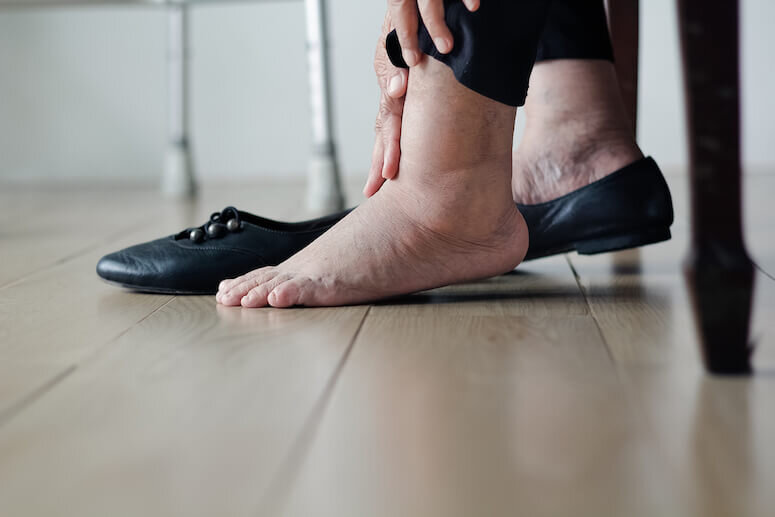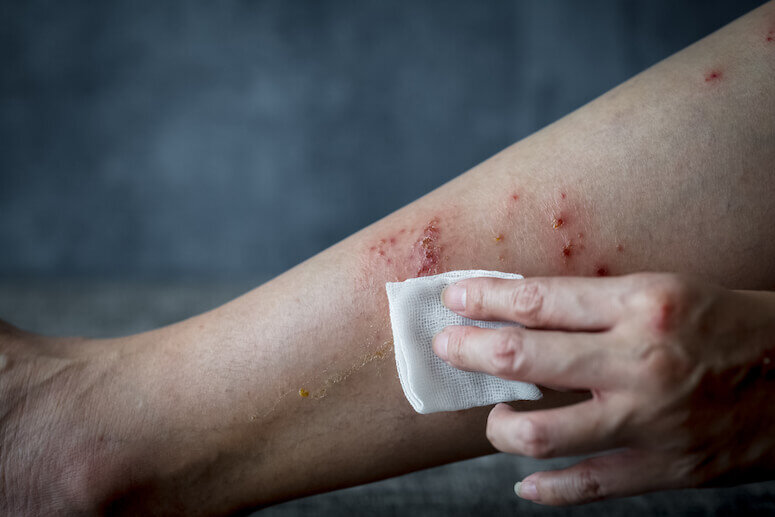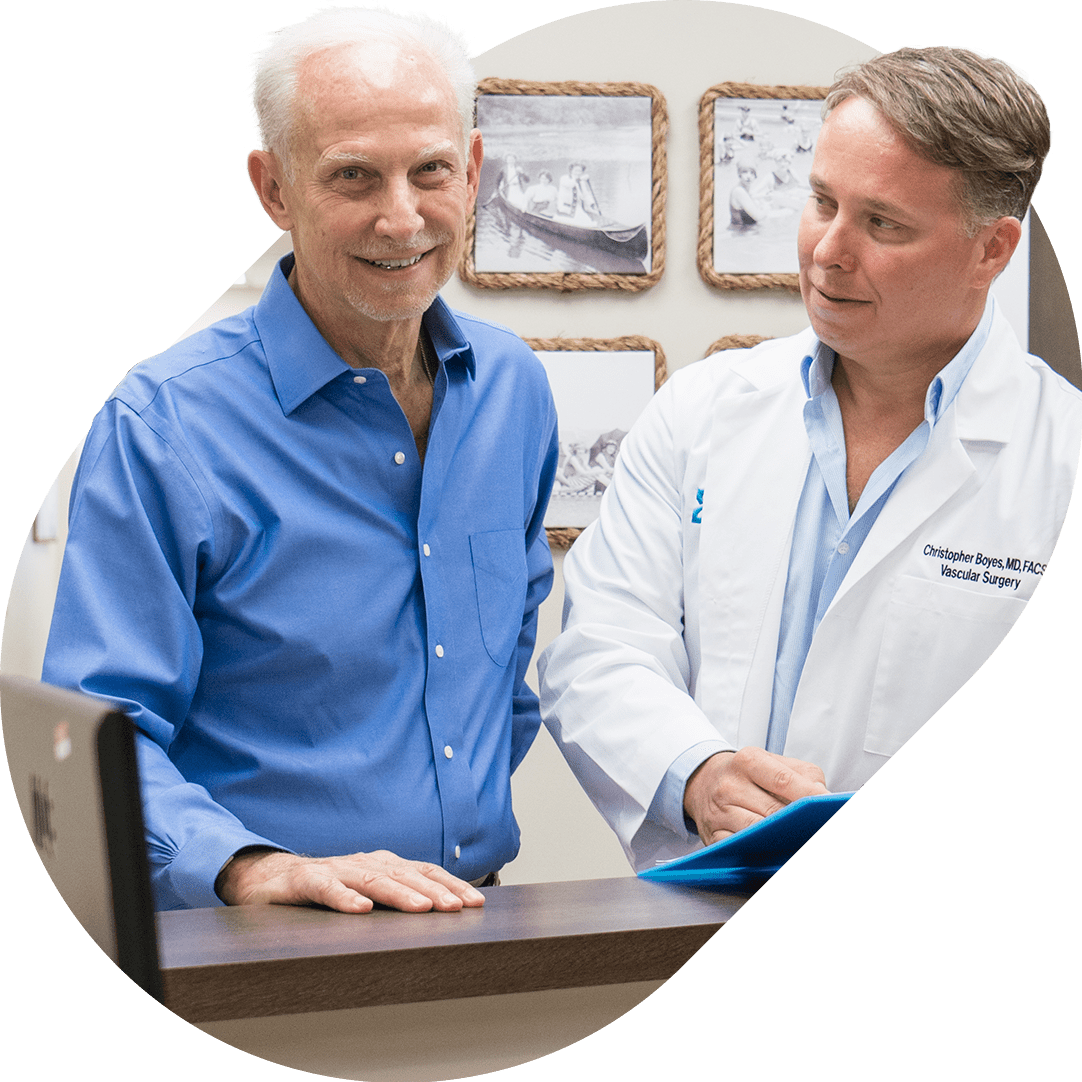Much of the general information about varicose veins covers the basic symptomatic traits such as leg pain, cramps, diminished function, and low blood circulation. However, there are many other health problems that are associated with or a result of the presence of untreated varicose veins. These problems can have a significant impact on a person’s overall health. Following are some symptoms to look out for:
Leg Swelling – Varicose veins cause a reflux, or backflow of blood. This can lead to tremendous pressure in the veins, especially in the lower leg where the thrust against gravity is greatest. When the pressure becomes too much, fluid can be forced out through the vein walls into surrounding tissue, leading to swelling.
Studies also show inflammation in the blood when venous reflux occurs. This inflammation can cause swelling. While leg swelling is usually noticeable, it can be subtle, sometimes indicated by a tight sensation in the skin. In some cases, it subsides overnight as the leg is kept in a horizontal position, then increases throughout the day.

Skin Infections – The twisting and bulging of varicose veins against the skin’s surface can cause irritation, stretching, and other changes to the skin. Often the skin can become thin, shiny, or hard, sometimes taking on a blue, purple, red, or brown color over the affected area. These changes compromise the protection normally provided by the dermal layer and makes the area prone to bacterial skin infections.
Varicose Eczema – This long-term condition has the appearance of patchy, irritated skin, that is usually red, brown, or purple. The skin becomes itchy, dry, and flaky with a crusty or scaly appearance. Usually caused by varicose veins, this painful condition is a result of venous and blood flow deficiencies. Treating the underlying varicose vein issues should alleviate the problem.
Skin Ulcers – By definition, an ulcer is a break in the skin that will not heal. The combination of skin damage, tension, irritation, and reduced tissue nourishment as a result of varicose veins, creates an environment in which skin is not regenerated in a normal, healthy manner. Minor sores can turn into painful skin ulcers. If a skin ulcer is a result of untreated varicose veins, temporary results may be achieved with compression bandages. However, permanent treatment of the underlying problem is necessary to prevent recurrence.
Lipodermatosclerosis – Characterized by a hardening of the skin and an inflammation of the layer of fat beneath the skin, lipodermatosclerosis causes pain, discoloration, swelling, and a tapering of the legs above the ankles. Its underlying cause is often associated with obesity, venous deficiency, and varicose veins.

Bleeding – Varicose veins are bulging vessels and carry a larger volume of blood than healthy veins. Any cut or injury to a varicosed vein may lead to above average bleeding or bruising. Stopping the bleeding may take more time than with healthy veins.
Varicosity occurs in superficial veins, which are a secondary venous system feeding into deep veins, the primary venous system. Problems in the former can lead to bigger problems in the latter.
Deep Vein Thrombosis – When varicose veins impede normal circulation it can create a stagnant blood flow, enabling blood clots to form in the diseased veins and other nearby vessels affected by the disruption. When blood clots form in a deep vein it is known as deep vein thrombosis (DVT). These clots are particularly dangerous as they are within the primary blood flow. If they break free, these clots can travel to the lungs with serious consequences including pulmonary embolism. It is important to treat varicose veins to prevent deep vein thrombosis from occurring.
Post-Surgical Blood Clots – Complications from blood clots following surgery and the link to untreated varicose veins was identified in a major long-term study. These health risks are particularly notable with surgery on joints, such as hip, knee, and wrist. Many orthopedic surgeons now recommend treating varicose veins prior to surgery.
The health risks and complications related to varicose veins are multi-faceted. Symptoms should be professionally evaluated and diagnosed by a doctor specializing in the study and treatment of vascular disease.
For patients in Florida near Palm Beach, Dr. Christopher Boyes, a leading board-certified vascular surgeon, is available to consult about the treatment of varicose veins and other vascular problems. Dr. Boyes is often physician-referred and consulted for expert second opinions. Please contact Coastal Vein and Vascular Specialists at 561-295-4110 to make an appointment.

Subscribe to our newsletter